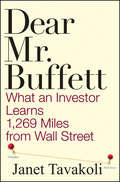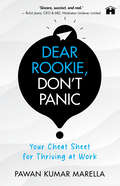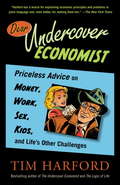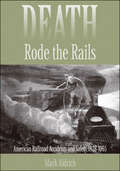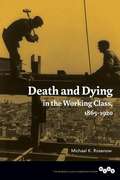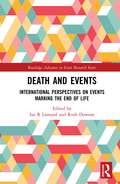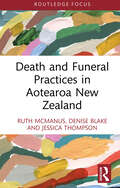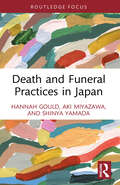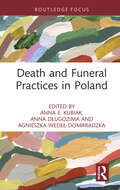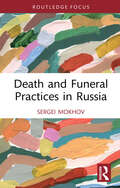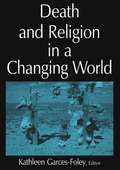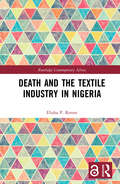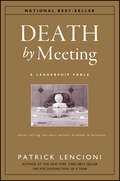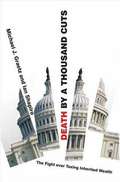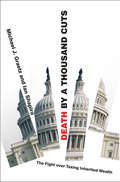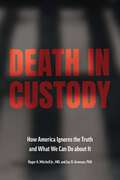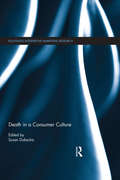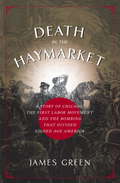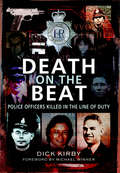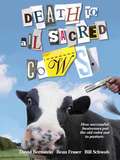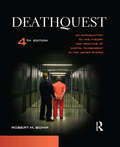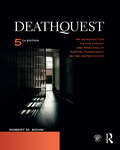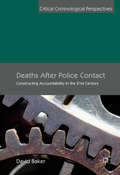- Table View
- List View
Dear Mr. Buffett
by Janet M. TavakoliJanet Tavakoli takes you into the world of Warren Buffett by way of the recent mortgage meltdown. In correspondence and discussion with him over 2 years, they both saw the writing on the wall, made clear by the implosion of Bear Stearns. Tavakoli, in clear and engaging prose, explains how the credit mess happened beginning with the mortgage lending Ponzi schemes funded by investment banks, the Fed bailout and its impact on the dollar. Through her narrative, we hear from Warren Buffett and learn how his enduring principles caused him to see the mess that was coming well in advance and kept him and his investors well out of the way.
Dear Photograph
by Taylor JonesWe all have moments we wish we could relive. We'd give anything to skid down the toboggan hills of our youth, to breathe in the smell of our children as babies, or to spend just one more minute with someone we've lost. Dear Photograph provides a way to link these memories from the past to the present, overlapping them to see how the daydreams of our memories collide with our current realities. The idea is simple: hold up a photograph from the past in front of the place where it was originally taken, take a second photograph, and add a sentence of dedication about what the photograph means to you. The results, however, are astounding, which is why millions have flocked to dearphotograph.com and thousands have submitted their own Dear Photographs. This stunning visual compilation includes more than 140 never-before-seen Dear Photographs, as well as a space for you to attach your own cherished photo. By turns nostalgic, charming, and poignant, Dear Photograph evokes childhood memories, laments difficult losses, and, above all, celebrates the universal nature of love.
Dear Rookie, Don’t Panic
by Pawan Kumar MarellaFilled with unfiltered reflections and hard-won lessons, Dear Rookie, Don&’t Panic is the candid career guide every newcomer needs but never gets. Packed with insights no classroom covered and advice no induction programme offered, this book delivers the practical wisdom you wish someone had shared with you on day one.In these pages, the author offers a mix of practical advice, relatable stories, and actionable steps that will help you navigate the complexities of your career with confidence. Structured for easy reading yet impactful in its delivery, each insight, piece of advice, and personal anecdote stands on its own as a powerful source of inspiration, reflection, and action.Whether you are earning your stripes, learning to lead, or simply trying to survive the daily grind, Dear Rookie, Don&’t Panic brings to life the highs and lows of a career in progress. It&’s the self-certified realist&’s guide to thriving in today&’s corporate landscape—personal, pragmatic, and always ready to be picked up whenever you need it most.
Dear Undercover Economist: Priceless Advice on Money, Work, Sex, Kids, and Life's Other Challenges
by Tim HarfordThroughout history, great philosophers have been answering profound questions about life. But do they know why your socks keep disappearing from the dryer, or how to choose the quickest line at the supermarket? Probably not, but Tim Harford does. . . . In Dear Undercover Economist, the first collection of his wildly popular Financial Timescolumns, Tim Harford offers witty, charming, and at times caustic answers to our most pressing concerns–all through the lens of economics. Does money buy happiness? Is “the one” really out there? Can cities be greener than farms? Can you really “dress for success”? When’s the best time to settle down? Harford provides brilliant, hilarious, unexpected, and wise answers to these and other questions. Arranged by topic, easy to read, and hard to put down,Dear Undercover Economistlends an outrageous, compassionate, and indispensable perspective on anything that may irk or ail you–a book well worth the investment.
Death Rode the Rails: American Railroad Accidents and Safety, 1828–1965
by Mark AldrichFor most of the 19th and much of the 20th centuries, railroads dominated American transportation. They transformed life and captured the imagination. Yet by 1907 railroads had also become the largest cause of violent death in the country, that year claiming the lives of nearly twelve thousand passengers, workers, and others. In Death Rode the Rails Mark Aldrich explores the evolution of railroad safety in the United States by examining a variety of incidents: spectacular train wrecks, smaller accidents in shops and yards that devastated the lives of workers and their families, and the deaths of thousands of women and children killed while walking on or crossing the street-grade tracks. The evolution of railroad safety, Aldrich argues, involved the interplay of market forces, science and technology, and legal and public pressures. He considers the railroad as a system in its entirety: operational realities, technical constraints, economic history, internal politics, and labor management. Aldrich shows that economics initially encouraged American carriers to build and operate cheap and dangerous lines. Only over time did the trade-off between safety and output—shaped by labor markets and public policy—motivate carriers to develop technological improvements that enhanced both productivity and safety.A fascinating account of one of America's most important industries and its dangers, Death Rode the Rails will appeal to scholars of economics and the history of transportation, technology, labor, regulation, safety, and business, as well as to railroad enthusiasts.
Death and Dying in the Working Class, 1865-1920
by Michael K. RosenowMichael K. Rosenow investigates working people's beliefs, rituals of dying, and the politics of death by honing in on three overarching questions: How did workers, their families, and their communities experience death? Did various identities of class, race, gender, and religion coalesce to form distinct cultures of death for working people? And how did people's attitudes toward death reflect notions of who mattered in U.S. society? Drawing from an eclectic array of sources ranging from Andrew Carnegie to grave markers in Chicago's potter's field, Rosenow portrays the complex political, social, and cultural relationships that fueled the United States' industrial ascent. The result is an undertaking that adds emotional depth to existing history while challenging our understanding of modes of cultural transmission.
Death and Events: International Perspectives on Events Marking the End of Life (Routledge Advances in Event Research Series)
by Ian R LamondThis unique volume examines death from a socio-cultural events perspective. Drawing on the empirical and conceptual work produced by an international body of researchers, it is the first publication to look at death, dying, memorialization, and their mediation, from an events orientation. By placing the contribution of these scholars together, this book provides a unique opportunity to instigate an international, critical discussion, around the connectivities associated with death and events. Chapters consider connections to death and events on many levels, including individual, local, communally based, construals of the event landscape; the relationship between death and events into larger socio-cultural frames of reference. Chapteres also consider how death and events are manifest through diverse platforms of mediation, with a discussion of the media presentation of end of life events, and the articulation of death online. Case studies from a wide-ranging selection of countries, from Moscow to Bangladesh to Cambodia, are examined throughout. This will be of great interest to upper-level students and researchers in event studies as well as a variety of other disciplines such as sociology and cultural studies.
Death and Funeral Practices in Aotearoa New Zealand (Routledge International Focus on Death and Funeral Practices)
by Ruth McManus Denise Blake Jessica ThompsonThis book provides a shortform definitive reference text on the landscape and features of Aotearoa New Zealand that underpin its familiar, though country-specific, ways of caring for the dead. It provides an account of diverse funerary practices that have taken shape through the various cultures that have settled here.In the backdrop of the colonising history of Aotearoa New Zealand, the book examines the complex legislative framework that separates Māori and non-Māori funerary legislation and practices. Examining the mixed model of provision spanning municipal, commercial, and private organisations, the book outlines various aspects of funerals, such as the care of the body, funeral arrangements, costs, and what state support is available. It also delves into the two legal ways to manage the dead: burial or cremation, with cremation now the majority option. The book explores the numbers, ownership and locations of crematoria and cemeteries before identifying the new trends influencing death care including sustainability. It then looks at how death is memorialised in Aotearoa New Zealand, including in cemeteries, for war memorialisation, and other public commemoration and memorialisation.This book will be of interest to the growing body of local authority planners, researchers, and funeral professionals who must be responsive to and provide their services in complex multi-cultural contexts. As the scope of the book is historical and contemporary death practices, it will also appeal to social historians.
Death and Funeral Practices in Japan (Routledge International Focus on Death and Funeral Practices)
by Hannah Gould Aki Miyazawa Shinya YamadaThis book provides a clear and comprehensive introduction to the past, present, and future direction of death rituals and deathcare systems within Japan.As Japan heads toward a precarious future shaped by its super-ageing society, secularisation, and economic stagnation, the socioreligious structures that once organised death and funeral practice are becoming increasingly unstable. In their place, new social structures, technologies, and rituals for the farewell of the dead, handling of cremains, and commemoration of the ancestors have begun to emerge. The work is informed by the authors’ extensive research within Japan’s funeral, cemetery, and memorialisation sectors and the latest Japanese data sources and academic publications, many of which are not currently available in English.Providing readily accessible and contextualising information, this book will be an essential reference for graduate students and academics, as well as international policymakers and deathcare practitioners.
Death and Funeral Practices in Poland (Routledge International Focus on Death and Funeral Practices)
by Anna E. Kubiak Anna Długozima Agnieszka Wedeł-DomaradzkaThis book provides a shortform definitive reference text on funerary practice in Poland. An overview of the important features of the Polish funeral law, funerals, cremations, cemeteries, and funeral industry, the book also covers the demographic characteristic of mortality in Poland. Drawing on original empirical research, the book is interdisciplinary, which facilitates further transnational comparative research on this important topic. It is the first book to offer a broad look at the evolution and current status of Polish funerary practices. It provides an essential summary to researchers with an interest in funeral practices in Poland. Some of the areas explored are the country’s historical development, the contemporary legal framework and how Poland manages its cemeteries, crematoria and other death spaces. Built on original ethnographic research conducted by the authors, this book interprets the predominance of Catholic funerals, examines the relatively recent history of cremation, and contextualizes the practices of commemoration and memoralisation. This interdisciplinary book will be of interest to academics, policymakers and practitioners interested in the historic, geographic, demographic, (multi)cultural and political context in which the funerary practices in Poland have developed, as well as the technical and professional aspects of the industry.
Death and Funeral Practices in Portugal (Routledge International Focus on Death and Funeral Practices)
by Rafaela Ferraz Ferreira Ana Júlia Almeida Miranda Francisco QueirozAcademic studies on death and cemeteries are relatively recent in Portugal; those that do exist tend to adopt an essentially historical and artistic point of view. Studies on the practicalities of managing the dead and their spaces are even more recent, and they do not yet form a cohesive body of work. Combining both approaches, Death and Funeral Practices in Portugal is the first book to offer a broad look at the evolution and current status of Portuguese funerary practice. By exploring the country’s historical development, examining the contemporary legal framework, and systematizing the way Portugal manages its cemeteries, crematoria, and other death spaces, this book aims to provide an essential reference to researchers with an interest in Portuguese funeral practice. Among other themes, this book interprets the predominance of Catholic funerals, examines the relatively recent history of cremation, and contextualizes the practices of exhumation and grave re-use, which are integral to the normal functioning of a Portuguese cemetery. This is the first book on Portuguese death and dying written specifically for a non-Portuguese audience. It will be of interest to researchers and scholars but also accessible to students and non-specialist readers first coming into the subject.
Death and Funeral Practices in Russia (Routledge International Focus on Death and Funeral Practices)
by Sergei MokhovBuilt on original ethnographic research conducted by the author, this book offers a highly detailed and comprehensive account of funerary history and practices in Russia. Death and Funeral Practices in Russia provides rich data on mortality statistics, trends in the funeral market in contemporary Russia, the legal framework of funerary practices, as well as regional and demographic disparities. The first part of the book presents an in-depth account of the historical development of funerary practice in Russia, charting the emergence and evolution of funeral traditions and customs in the country from the Russian Empire to the collapse of the USSR. Having explored the wider historical context surrounding funerary culture in Russia, the second part of the book explores the key features of the funeral industry in post-Soviet times, highlighting critical changes and areas of continuity. Topics explored include the death care industry in Russia, the key features of the typical funeral in the country, cemetery and crematorium provision, the technicalities and legalities of burial and cremation, and the illegal practices within the funeral market. A truly unique offering, the book is essential reading for academics, policy makers and practitioners interested in the history, legal, technical and professional aspects of the funerary industry in Russia.
Death and Religion in a Changing World
by Kathleen Garces-FoleyThis comprehensive study of the intersection of death and religion offers a unique look at how religious people approach death in the twenty-first century. Previous scholarship has largely focused on traditional beliefs and paid little attention to how religious traditions evolve in relation to their changing social context. Employing a sociological approach, "Death and Religion in a Changing World" describes how people from a wide variety of faiths draw on and adapt traditional beliefs and practices as they deal with death in modern societies. The book includes coverage of newly emerging social and religious phenomena that are only just beginning to be analyzed by religion scholars, such as public shrines, the role of the media, spiritual bereavement groups, and the use of the Internet in death practices.
Death and the Textile Industry in Nigeria (Routledge Contemporary Africa)
by Elisha P RenneThis book draws upon thinking about the work of the dead in the context of deindustrialization—specifically, the decline of the textile industry in Kaduna, Nigeria—and its consequences for deceased workers’ families. The author shows how the dead work in various ways for Christians and Muslims who worked in KTL mill in Kaduna, not only for their families who still hope to receive termination remittances, but also as connections to extended family members in other parts of Nigeria and as claims to land and houses in Kaduna. Building upon their actions as a way of thinking about the ways that the dead work for the living, the author focuses on three major themes. The first considers the growth of the city of Kaduna as a colonial construct which, as the capital of the Protectorate of Northern Nigeria, was organized by neighborhoods, by public cemeteries, and by industrial areas. The second theme examines the establishment of textile mills in the industrial area and new ways of thinking about work and labor organization, time regimens, and health, particularly occupational ailments documented in mill clinic records. The third theme discusses the consequences of KTL mill workers’ deaths for the lives of their widows and children. This book will be of interest to scholars of African studies, development studies, anthropology of work, and the history of industrialization.
Death by Meeting: A Leadership Fable...about Solving The Most Painful Problem In Business (J-b Lencioni Ser. #15)
by Patrick M. LencioniCasey McDaniel had never been so nervous in his life.In just ten minutes, The Meeting, as it would forever be known, would begin. Casey had every reason to believe that his performance over the next two hours would determine the fate of his career, his financial future, and the company he had built from scratch."How could my life have unraveled so quickly?" he wondered.In his latest page-turning work of business fiction, best-selling author Patrick Lencioni provides readers with another powerful and thought-provoking book, this one centered around a cure for the most painful yet underestimated problem of modern business: bad meetings. And what he suggests is both simple and revolutionary.Casey McDaniel, the founder and CEO of Yip Software, is in the midst of a problem he created, but one he doesn't know how to solve. And he doesn't know where or who to turn to for advice. His staff can't help him; they're as dumbfounded as he is by their tortuous meetings.Then an unlikely advisor, Will Peterson, enters Casey's world. When he proposes an unconventional, even radical, approach to solving the meeting problem, Casey is just desperate enough to listen.As in his other books, Lencioni provides a framework for his groundbreaking model, and makes it applicable to the real world. Death by Meeting is nothing short of a blueprint for leaders who want to eliminate waste and frustration among their teams, and create environments of engagement and passion.
Death by a Thousand Cuts: The Fight Over Taxing Inherited Wealth
by Ian Shapiro Michael J. GraetzThis fast-paced book by Yale professors Michael Graetz and Ian Shapiro unravels the following mystery: How is it that the estate tax, which has been on the books continuously since 1916 and is paid by only the wealthiest two percent of Americans, was repealed in 2001 with broad bipartisan support? The mystery is all the more striking because the repeal was not done in the dead of night, like a congressional pay raise. It came at the end of a multi-year populist campaign launched by a few individuals, and was heralded by its supporters as a signal achievement for Americans who are committed to the work ethic and the American Dream. Graetz and Shapiro conducted wide-ranging interviews with the relevant players: members of congress, senators, staffers from the key committees and the Bush White House, civil servants, think tank and interest group representatives, and many others. The result is a unique portrait of American politics as viewed through the lens of the death tax repeal saga. Graetz and Shapiro brilliantly illuminate the repeal campaign's many fascinating and unexpected turns--particularly the odd end result whereby the repeal is slated to self-destruct a decade after its passage. They show that the stakes in this fight are exceedingly high; the very survival of the long standing American consensus on progressive taxation is being threatened. Graetz and Shapiro's rich narrative reads more like a political drama than a conventional work of scholarship. Yet every page is suffused by their intimate knowledge of the history of the tax code, the transformation of American conservatism over the past three decades, and the wider political implications of battles over tax policy.
Death by a Thousand Cuts: The Fight over Taxing Inherited Wealth
by Ian Shapiro Michael J. GraetzThis fast-paced book by Yale professors Michael Graetz and Ian Shapiro unravels the following mystery: How is it that the estate tax, which has been on the books continuously since 1916 and is paid by only the wealthiest two percent of Americans, was repealed in 2001 with broad bipartisan support? The mystery is all the more striking because the repeal was not done in the dead of night, like a congressional pay raise. It came at the end of a multiyear populist campaign launched by a few individuals, and was heralded by its supporters as a signal achievement for Americans who are committed to the work ethic and the American Dream. Graetz and Shapiro conducted wide-ranging interviews with the relevant players: members of congress, senators, staffers from the key committees and the Bush White House, civil servants, think tank and interest group representatives, and many others. The result is a unique portrait of American politics as viewed through the lens of the death tax repeal saga. Graetz and Shapiro brilliantly illuminate the repeal campaign's many fascinating and unexpected turns--particularly the odd end result whereby the repeal is slated to self-destruct a decade after its passage. They show that the stakes in this fight are exceedingly high; the very survival of the long standing American consensus on progressive taxation is being threatened. Graetz and Shapiro's rich narrative reads more like a political drama than a conventional work of scholarship. Yet every page is suffused by their intimate knowledge of the history of the tax code, the transformation of American conservatism over the past three decades, and the wider political implications of battles over tax policy.
Death in Custody: How America Ignores The Truth And What We Can Do About It (Health Equity In America Ser.)
by Roger A. Mitchell, Jr. and Jay D. AronsonDeath in a Consumer Culture (Routledge Interpretive Marketing Research)
by Susan DobschaDeath has never been more visible to consumers. From life insurance to burial plots to estate planning, we are constantly reminded of consumer choices to be made with our mortality in mind. Religious beliefs in the afterlife (or their absence) impact everyday consumption activities. Death in a Consumer Culture presents the broadest array of research on the topic of death and consumer behaviour across disciplinary boundaries. Organised into five sections covering: The Death Industry; Death Rituals; Death and Consumption; Death and the Body; and Alternate Endings, the book explores topics from celebrity death tourism, pet and online memorialization; family history research, to alternatives to traditional corpse disposal methods and patient-assisted suicide. Work from scholars in history, religious studies, sociology, psychology, anthropology, and cultural studies sits alongside research in marketing and consumer culture. From eastern and western perspectives, spanning social groups and demographic categories, all explore the ubiquity of death as a physical, emotional, cultural, social, and cosmological inevitability. Offering a richly unique anthology on this challenging topic, this book will be of interest to researchers working at the intersections of consumer culture, marketing and mortality.
Death in the Haymarket: A Story of Chicago, the First Labor Movement, and the Bombing That Divided Gilded Age America
by James GreenOn May 4, 1886, a bomb exploded at a Chicago labor rally, wounding dozens of policemen, seven of whom eventually died. Coming in the midst of the largest national strike Americans had ever seen, the bombing created mass hysteria and led to a sensational trial, which culminated in four controversial executions. The trial seized headlines across the country, created the nation's first red scare and dealt a blow to the labor movement from which it would take decades to recover. Death in the Haymarketbrings these remarkable events to life, re-creating a tempestuous moment in American social history. James Green recounts the rise of the first great labor movement in the wake of the Civil War and brings to life the epic twenty-year battle for the eight-hour workday. He shows how the movement overcame numerous setbacks to orchestrate a series of strikes that swept the country in 1886, positioning the unions for a hard-won victory on the eve of the Haymarket tragedy. As he captures the frustrations, tensions and heady victories, Green also gives us a rich portrait of Chicago, the Midwestern powerhouse of the Gilded Age. We see the great factories and their wealthy owners, including men such as George Pullman, and we get an intimate view of the communities of immigrant employees who worked for them. Throughout, we are reminded of the increasing power of newspapers as, led by the legendaryChicago Tribuneeditor Joseph Medill, they stirred up popular fears of the immigrants and radicals who led the unions. Blending a gripping narrative, outsized characters and a panoramic portrait of a major social movement,Death in the Haymarketis an important addition to the history of American capitalism and a moving story about the class tensions at the heart of Gilded Age America. From the Hardcover edition.
Death on the Beat: Police Officers Killed in the Line of Duty
by Dick KirbyA former member of London&’s MP Flying Squad pays tribute to his fellow officers in a gripping and emotional true crime chronicle of duty and sacrifice. Dick Kirby of London&’s Serious Crime Squad shares ten stories of courage spanning fifty years of crime enforcement in the Metropolitan Police. In honoring the selfless men and women who gave their lives, Kirby sheds light on the ever-present dangers of street patrol—from confrontations at public protests to being caught in the middle of a gang war to answering a seemingly run-of-the-mill call at a quiet residence. Here are the true stories of extraordinary lives cut short: WPC Yvonne Fletcher gunned-down while policing a demonstration at the Libyan Embassy; Detective Sergeant Ray Purdy, taken out while arresting a common blackmailer; PC Ray Summers, an officer with less than two years&’ service, stabbed to death as he broke up a gang fight; a three-man crew in an unmarked &‘Q&’ car wiped out by gunmen; PC Nat Edgar, shot by a burglar; PC Patrick Dunne, a home-beat officer murdered while investigating a domestic dispute; the horrific bombing of Herrods department store which cost three brave police officers their lives; and the murder of PC Stephen Tibble, which sparked investigations into the IRA. Drawing deeply on his knowledge and contacts within and outside the Metropolitan Police, Kirby explores the lives and deaths of these officers, and the trauma endured by the colleagues and loved ones they left behind. &“I am delighted that Dick Kirby has written this book. Such heroes should be remembered.&” —Michael Winner, director of Death Wish, from the Forward
Death to All Sacred Cows: How Successful Businesses Put the Old Rules Out to Pasture
by David Bernstein"Teams Create the Best Solutions." BANG."Always Trust Your Research." BANG."It's Okay to Put Up with Jerks, If They're Talented." BANG.When you think about it, there are a lot of Sacred Cows grazing lazily in the halls of corporate America. And we think it's time someone shot them. Dead.Don't get us wrong. While the authors have nothing against cows in general (they love steak), they do have a problem with Sacred Cows. Blindly doing things because . . . well . . . that's the way they've always been done. Formulas may be comforting, but they rarely work in the real world.This is the funniest--and truest--business book you'll ever read. Not only do the authors demonstrate how to identify and kill the Sacred Cows in your workplace, they also reveal brilliant alternatives that will put your career in overdrive and help make your business more profitable, innovative, and happy.From branding ("Branding Is Expensive." BANG.) to leadership ("Follow the Leader." BANG.) to hiring ("Only Hire Someone Who Has Done the Job Before." BANG.) no Sacred Cow is left standing.Oh, and here's another Sacred Cow of business books:"No one reads flap copy." BANG!
DeathQuest: An Introduction to the Theory and Practice of Capital Punishment in the United States
by Robert M. BohmThis fourth edition of the first true textbook on the death penalty engages the reader with a full account of the arguments and issues surrounding capital punishment. The book begins with the history of the death penalty from colonial to modern times, and then examines the moral and legal arguments for and against capital punishment. It also provides an overview of major Supreme Court decisions and describes the legal process behind the death penalty. In addressing these issues, the author reviews recent developments in death penalty law and procedure, including ramifications of newer case law, such as that regarding using lethal injection as a method of execution. The author's motivation has been to understand what motivates the "deathquest" of the American people, leading a large percentage of the public to support the death penalty. The book will educate readers so that whatever their death penalty opinions are, they are informed ones.
DeathQuest: An Introduction to the Theory and Practice of Capital Punishment in the United States
by Robert M. BohmThis fifth edition of the first true textbook on the death penalty engages the reader with a full account of the arguments and issues surrounding capital punishment. The book begins with the history of the death penalty from colonial to modern times, and then examines the moral and legal arguments for and against capital punishment. It also provides an overview of major Supreme Court decisions and describes the legal process behind the death penalty. In addressing these issues, the author reviews recent developments in death penalty law and procedure, including ramifications of newer case law, such as that regarding using lethal injection as a method of execution. The author’s motivation has been to understand what motivates the "deathquest" of the American people, leading a large percentage of the public to support the death penalty. The book educates readers so that whatever their death penalty positions are, they are informed opinions.
Deaths After Police Contact
by David BakerThis book investigates death after police contact in England and Wales in the twenty-first century. It examines how regulatory bodies construct accountability in such cases. Cases of death after police contact have the potential to cause deep unease in society. They highlight the unique role of the police in being legitimately able to use force whilst at the same time being expected to preserve life. People who are from Black, or Minority Ethnic backgrounds, or have mental health issues, or are dependent on substances are disproportionately more likely to die in these cases, and this emphasises the sensitive nature of many of these deaths to society. Deaths after Police Contact examines police legitimacy and the legitimacy of police regulators in these cases. The book argues that accountability is produced by a relatively arbitrary system of regulation that investigates such deaths as individual cases, rather than attempting to learn lessons from annual trends and patterns that might prevent future deaths. It will be of great interest to scholars and upper-level students of policing and criminal justice.
